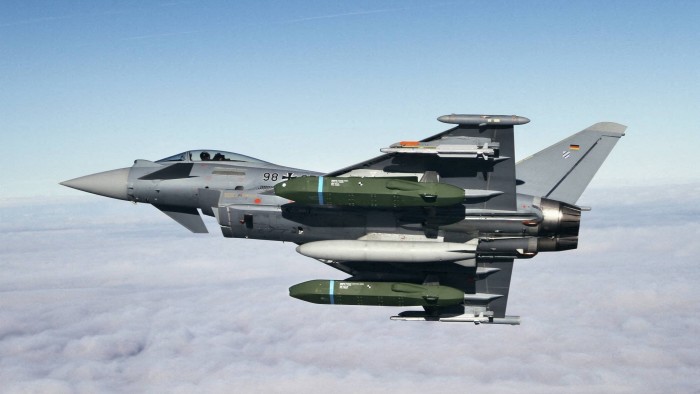Stay informed with free updates
Simply sign up to the War in Ukraine myFT Digest — delivered directly to your inbox.
Germany’s chancellor Friedrich Merz has backed Ukrainian military strikes deep into Russian territory, following his earlier commitment to supply Kyiv with German long-range missiles.
Germany, Britain, France and the US have removed all range restrictions for weapons delivered to Ukraine, Merz said on Monday.
Paris, London and Washington have supplied long-range missiles to Kyiv and have already allowed strikes in Russian territory.
But Merz’s stance contrasts with that of his Social Democratic predecessor Olaf Scholz, whom he replaced this month.
The former chancellor repeatedly rejected pleas from Kyiv and its allies to supply the Ukrainian armed forces with German Taurus missiles, which have an intelligent warhead system that can inflict huge damage to structures such as bridges and bunkers.
While Merz has decided to stop disclosing weapon deliveries since taking office — a stance in line with the “strategic ambiguity” approach of French President Emmanuel Macron — he had previously said he favoured deliveries of Taurus missiles to Kyiv if they were co-ordinated with European allies.
“There is no longer any range restriction on weapons delivered to Ukraine, neither by the British, nor by the French, nor by us, nor by the Americans,” Merz said at a conference in Berlin on Monday.
He added: “This means that Ukraine can now defend itself, for example by attacking military positions in Russia. It couldn’t do that until some time ago, it did do that with very few exceptions. [Ukraine] can do that now. In jargon we call this long range fire.”
The centre-right chancellor made his comments after three days of Russian air attacks on Ukraine that involved more than 1,000 drone and missile strikes.
Dmitry Peskov, President Vladimir Putin’s spokesman, said that decisions to give Ukraine longer-range missiles were “potentially dangerous” and could frustrate “attempts to reach a settlement” in Ukraine, according to state newswire Tass.
The 500km-plus range of the Taurus cruise missile is further than the Storm Shadows and Scalps supplied by the British and French and the Army Tactical Missile System (Atacms) provided by the US.
Those British, French and American missiles were first used against military targets inside Russia’s Bryansk and Kursk regions in November, when the respective governments quietly lifted geographical restrictions on their use.
Separately, Kyiv has also developed its own Neptune long-range missiles, as well as drones that target Russian territory.
Merz’s comments come as European leaders are racing to come up with a plan to increase pressure on Moscow, after US President Donald Trump signalled he is inclined to leave them to sort the conflict among themselves.
UK Prime Minister Keir Starmer will meet Merz in Aachen in western Germany on Thursday, where EU commission president Ursula von der Leyen is receiving the Charlemagne prize.
British officials said Starmer would talk to Merz about increasing economic pressure on Russia and ensuring Ukraine has the financial and military support it needs to maintain the fight.
Ukraine President Volodymyr Zelenskyy is due to travel to Berlin on Wednesday, according to Der Spiegel.
With Washington’s commitment to Ukraine’s security seemingly waning, the French, British and German leaders are increasingly divided over how much military support can be provided to Ukraine after the war.
France and the UK, the two instigators of a so-called “coalition of the willing”, have insisted that an initial plan of deploying troops on the ground in Ukraine is still feasible.
Other nations, including Germany, are more sceptical, since the US remains opposed to the idea and has not promised the security “backstop” previously sought by European powers for such a force.
Starmer and Macron continue to back the troops proposal, people involved in the negotiations said, so as to keep Europe involved in the ceasefire talks and maintain Ukrainian morale, as well as demonstrating their commitment to Trump.
One European official said the troops plan was “dead”, since it was “preposterous without the help of Trump, and he’s not willing to provide it”.
But a French diplomat countered that the reports of the proposal’s death were “not only greatly exaggerated” but also “totally untrue”, adding that the countries were still working on the plans “at normal pace”.
Additional reporting by Leila Abboud in Paris and Max Seddon in Berlin
Read the full article here
